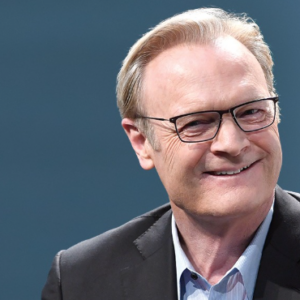WATCH: Leavitt’s Fiery Clash With CNN Reporter Over Signal Leak Question

Image: Getty Images
In a recent press briefing at the White House, the political atmosphere reached new heights of tension as Karoline Leavitt, the press secretary for Donald Trump, engaged in a fiery exchange with CNN’s Kaitlan Collins. The crux of the confrontation centered around a complex scenario involving a Signal group chat, which has garnered attention for its implications in sensitive military discussions. The dialogue became particularly heated as Collins attempted to pose a follow-up question, only to be met with Leavitt’s steadfast refusal to engage further.

Image: Getty Images
Leavitt firmly maintained that the President’s stance on the controversy surrounding the Signal leak had not evolved, dismissing Collins’s inquiry as one that had already been adequately addressed. This refusal to elaborate intensified the underlying tensions in the room, showcasing the rising friction between the administration and mainstream media. For those following the political landscape, this exchange depicted how contentious interactions can quickly escalate during press events.
Highlighting the Signal Group Chat Controversy
The briefing was predominantly dominated by discussions surrounding the group chat controversy, which inadvertently included Jeffery Goldberg, the editor of The Atlantic. In that chat, sensitive military operations were discussed, leading to significant scrutiny. Leavitt didn’t hold back in her response to the media’s handling of the situation, particularly toward Goldberg. She labeled him an “anti-Trump hater” and accused Democratic supporters of orchestrating misinformation campaigns aimed at undermining the current administration.

Image: Getty Images
In her remarks, Leavitt drew a stark line between what she perceived as the exaggerated morals of the media and the reality of the situation. While she acknowledged that the inadvertent inclusion of a journalist in a serious conversation merited conversation, she contended that the media was framing the incident in a way that only served to sensationalize an otherwise minor mishap.
Republican Perspective on the Incident
The incident sparked diverse reactions across the political spectrum, especially among Republican officials. Many, including former President Trump, have decided to downplay the significance of the Signal group chat incident. They have suggested that the accidental inclusion of a journalist merely participating in a sensitive discussion does not warrant the intense backlash that has ensued. Leavitt echoed this Republican sentiment during the briefing, emphasizing that the media’s focus on the Signal leak is primarily sensationalized and lacking genuine foundational concern.

Image: Getty Images
As the exchange progressed, it became clear that the repercussions of the Signal leak continue to reverberate in the political arena, illustrating how information—especially sensitive information—can provoke intense media scrutiny. The contrast between what Leavitt articulated and what various media outlets have reported showcases an ongoing rivalry meant to shape public perception.
The Aftermath of the Confrontation
Following the heated exchange, perspectives varied widely. Supporters of Trump and Leavitt applauded their aggressive defense, arguing that they were standing firm against perceived media bias and unfair representation. Conversely, critics appreciated Collins’s efforts to hold the administration accountable, arguing that such confrontations highlight the importance of journalistic integrity and transparency amidst an era marked by misinformation. The focus on this controversy raises questions about the balance between media coverage and political accountability.

Image: Getty Images
The visibility of this interaction also signals a broader trend in the current political landscape, where communications between the government and media are fraught with tension. As press briefings become increasingly combative, the role of the press secretary transitions beyond mere information sharing into a battleground of narratives. The Signal leak controversy, while perhaps an isolated incident, becomes emblematic of the complex dynamics shaping modern political discourse.

Image: Getty Images
In the wake of such events, it will be interesting to observe how the discussions evolve and whether the administration will engage more openly or continue to deflect inquiries that paint them in a less favorable light. Such rhetorical dances may very well define the relationship between the press and government in these politically charged times.
The implications of the Signal leak controversy extend beyond mere political theatrics; they touch upon critical issues of transparency, accountability, and trust in both government and media institutions. Viewers and political observers alike are encouraged to remain vigilant as this story develops, seeking out information from reliable sources to form their perspectives on these contentious interactions.
Stay informed on the latest developments surrounding this controversy and others by following reliable news outlets, engaging in discussions, and advocating for accountability across both media and political landscapes. Your voice matters in shaping the narrative of our times!





